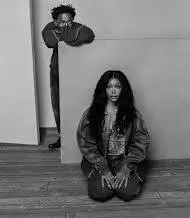By Anton Dedvukaj
In late January, singer Neil Young published an open letter asking Spotify to remove his music from the popular streaming service. His request was later granted by Spotify.
His reason for leaving the service was thanks to Spotify’s close association with Joe Rogan and his podcast, The Joe Rogan Experience. The podcast, which is easily Spotify’s most popular in the United States, has come under fire recently for its apparent stance against the COVID-19 vaccine and its alleged spread of misinformation regarding said vaccine.
Young voiced his concern with such misinformation being spread and essentially gave Spotify an ultimatum. He stated in his post, “[Spotify] can have Rogan or Young. Not both.”
Singer Joni Mitchell recently announced her support for Young, and stated that she will be following in his footsteps by removing her own catalog from the service. Several other artists have been rumored to be joining them, but none of these rumors have been confirmed to be true just yet.
There’s been much debate over whether or not Spotify did the right thing by implicitly siding with Rogan on this issue. There has been widespread support for Young since this issue began, with Spotify’s stock dropping 6% and the company losing $2.1 billion in market capitalization in the weekend following the news.
Similarly, there has been a fair amount of backlash to the backlash, as many people, particularly those on the political right, seem to think that Spotify made the right move. This argument stems from the idea that censoring Rogan would lead to a continued attack on right-wing viewpoints in media, including the commonly-held distaste for the COVID-19 vaccine.
Spotify’s CEO, Daniel Ek, has gone on the record to say that he doesn’t believe that silencing Rogan is the right thing to do, but certain episodes of the podcast have been getting removed as of late as well.
In the end, I personally don’t think that Young and Mitchell’s departure will lead to much in the way of long-term Spotify backlash. Both artists had less monthly listeners at the time that they left the platform than Rogan’s podcast did, and an argument can be made that removing his content will give more of a voice to controversial opinions such as his, rather than silencing them.
I think that in order for the backlash to get to the point where more significant action is taken, some currently popular artists would have to remove their content from the service. Young and Mitchell are currently legacy acts with no current hits, so it could be argued that Spotify likely could have lost more revenue by removing Rogan’s podcast than they did by removing Young and Mitchell’s music.
However, they’re also two of the few artists who can really afford to remove their music from Spotify. Currently popular acts, or at least their labels, likely get tons of exposure and streaming revenue from Spotify, so removing their music would also pose a significant threat to their career and their success.
As such, I think that Young and Mitchell’s departure from Spotify was a much safer move. These aren’t artists who are currently trying for hits, so they can make their statement and arguably achieve what they set out to do: begin a conversation. As more conversations arise in the wake of the Joe Rogan controversy, perhaps it could lead to creators being more careful what they put out online, or for more pressure to be put on Spotify to do something about it.
In the end, while I don’t think that Young and Mitchell leaving Spotify will do much by itself, I think it could lead to something more in the future.






Be First to Comment